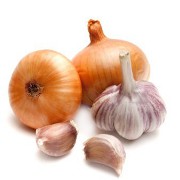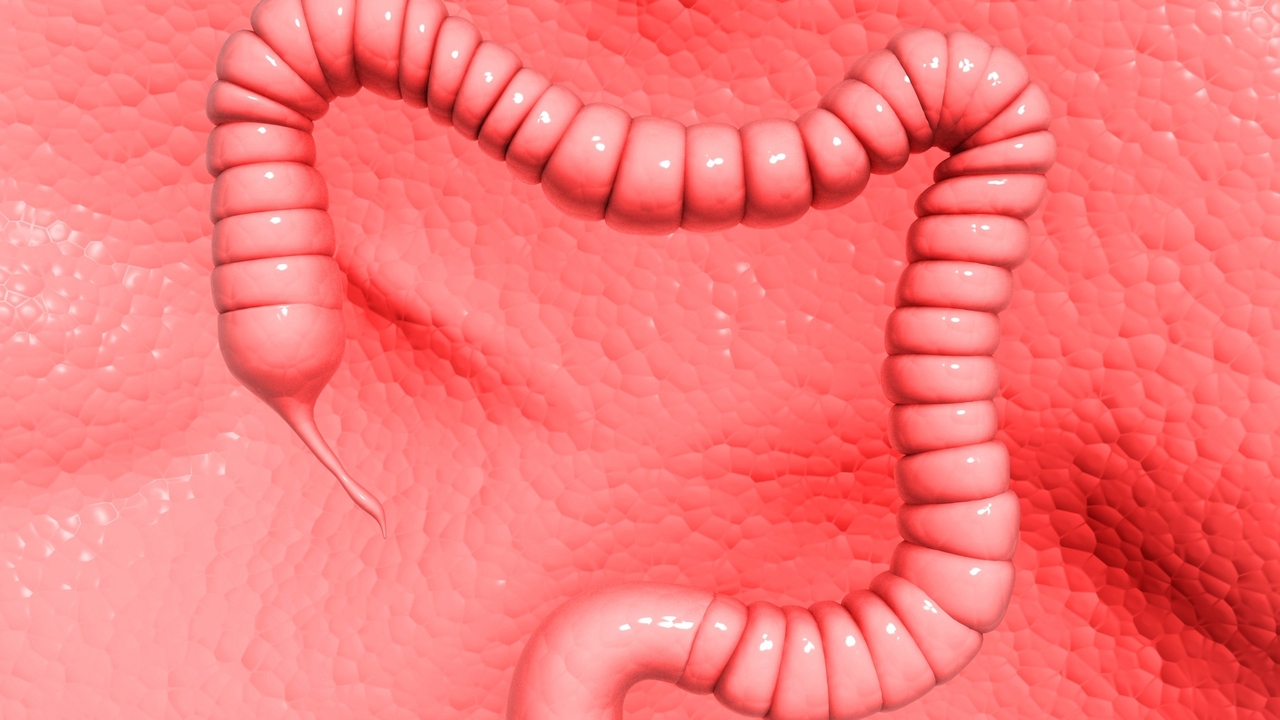 Photo: Getty Images
Photo: Getty Images
Individuals at increased risk for colon cancer include those with a family history of cancer or polyps, patients with inflammatory bowel conditions or a personal history of polyps, African Americans, and anyone over age 50. These are factors we can't control, but research on diet offers ways to reduce the risk.
Reference 1 focuses on the bacteria normally found in our intestines. There are an estimated 100 trillion organisms from 500 different species, which are collectively called the microbiota. The exact composition of the microbiota is believed to be unique for each individual. Variations in bacterial composition are associated with different risks for both obesity and colon cancer, which are also associated with each other.
Intestinal inflammation is one mechanism for the effects of bacteria on colon cancer development. In addition, bacterial metabolism produces both beneficial and harmful products. Carbohydrate fermentation by the colon microbiota generally produces beneficial products, while proteolytic fermentation produces produces nitrogen-containing compounds that can be toxic. Dietary choices can influence the overall metabolism of these bacteria.
1. Probiotics are live beneficial bacteria, usually of Lactobacillus and Bifidobacterium species. They are found naturally in milk products, juices, and cereal. Yogurt and probiotic capsules are rich sources. Unfortunately, the strains that are most successful at colonizing the intestines do not survive well outside the body, and vice versa. Currently available probiotics persist for only a short time after ingestion, so they need to be taken long term. More research is needed on strains that can colonize the intestines efficiently.
2. Prebiotics are non-digestible food components that encourage the growth of beneficial bacteria. Common examples are inulin and other oligosaccharides. These occur naturally in foods such as banana, oats, soybeans, artichokes, asparagus, wheat, onion, and garlic. Many probiotic supplements also include prebiotics.
3. Tea polyphenols selectively reduce the growth of pathogenic bacteria including Clostridum and Bacteroides, while not producing much effect on Bifidobacterium and Lactobacillus.
4. Turmeric, ginger, chili, black caraway, oregano and licorice have been found to kill Helicobacter pylori, which causes stomach cancer.
5. Resveratrol reduces the activity of some of the detrimental bacterial metabolizing enzymes. Rats fed resveratrol supplements had a significant reduction in colon tumor incidence.
The authors of Reference 1 concluded that there is a complex interaction between microbiota and colon cancer risk, which can be modified by diet. The time-honored advice to eat your vegetables can make a significant difference.
Reference:
1. Davis CD et al, “Gastrointestinal microflora, food components and colon cancer prevention”, J Nutr Biochem. 2009 October; 20(10): 743-52.
2. Risk factors for colon cancer:
http://www.mayoclinic.com/health/colon-cancer/DS00035/DSECTION=risk-factors
Linda Fugate is a scientist and writer in Austin, Texas. She has a Ph.D. in Physics and an M.S. in Macromolecular Science and Engineering. Her background includes academic and industrial research in materials science. She currently writes song lyrics and health articles.






Add a Comment3 Comments
There are many people talking about probiotics these days. Some people say they can cure anything, while others have their doubts - and rightly so. In general, there are very specific conditions (eg IBS, lactose intolerance, Bloating, Traveler's diarrhea) that have evidence backing these claims. It is important to be careful in choosing which probiotic you take for yourself and make sure you select one that has medical evidence supporting it. Yes, the reduction of inflammation can certainly help to reduce colon cancer. Lactobacillus is not the only species that can have a beneficial affect. Take a look at the website www.probioticsMD.com and follow the "Evidence" page to find research-based articles that support the use of probiotics in personal health
February 17, 2011 - 2:18pmThis Comment
Thank you for your interesting article and for including the discussion on probiotics and prebiotic food sources. If you want to know more please check out www.gutinsight.com which contains information that is scientifically based and you will find many foods with prebiotic fiber sources which you can eat daily. I have an interest in preventing cancer of the colon and I think there is a potential role for probiotics and prebiotics. The research is continuing to show promise.
February 10, 2011 - 3:49pmThis Comment
I take an acidophilus supplement everyday and feel great because of it. I also read a news piece the other day that said there maybe a link between an autoimmune response that may cause colon cancer and that acidophilus can help prevent this...http://www.optibacprobiotics.co.uk/optibac-news/optibac-probiotics-interesting-health-news-2011.html
February 10, 2011 - 4:41amThis Comment